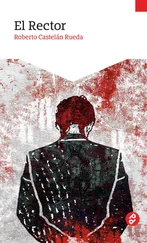Lirit pulled a smiling face, which she had learned and copied from her mother, and turned round to go home. Many things caught her eye, there was no doubt that her point of view had changed completely and she was now like a butterfly in a field of spring flowers. If her prehistoric Shlomi was right and it was impossible to swim in the same river twice, and the main thing in life was change itself — Shlomi said that change contained a lot of fire energy — then why shouldn’t she embark on a shopping expedition now in this Mikado, with her mother’s credit card, as long as it hadn’t been cancelled? What was stopping her? Who would stop her?
She scolded herself that it wasn’t nice, but nevertheless, in spite of the smell, she went into the opticians and tried on a pair of sunglasses for two hundred dollars that looked great on her, and paid with her mother’s credit card, but on the slip she signed Gruber without forging her mother’s signature. There were limits.
Afterward she went on looking the place over. She went into Nine One One and bought three tight-fitting tops, which in the past, with Shlomi, she wouldn’t have dared to wear because of their price.
She went home to rest, and made up her mind that after taking a little nap, because she was feeling giddy from the terrible smell, she would call a taxi (why waste time looking for parking in Tel Aviv?) and go to Dizengoff Center to continue what she had only just begun. If her father called her on her cell phone, first, she didn’t have to answer, and second, she didn’t owe him an account of her whereabouts, in a fitting room for example.
She would get the details of his return flight, and tell him that she would come and pick him up at the airport. He was her father, after all.
SHE STAYED IN THE CENTER for about five hours. She progressed at her leisure, going from shop to shop. At last she could buy clothes she hadn’t even dared to want to buy when she was attached to Shlomi and under her mother’s moral supervision. She remembered how at the beginning of their relationship he already had the nerve to insist that she get rid of her previous wardrobe, which included things worth thousands of dollars, like original designer outfits from Paris, Rome, and London. Because of these outfits her mother hadn’t spoken to her for three days from the minute the credit card charge showed up, but in the end she was forced to admit that Lirit looked fantastic in them. All her clothes, including the stunning shoes she had bought in Manhattan when she traveled to that island after the army, everything, in his presence she had thrown into the collection bin for the poverty stricken of the settler town of Netivot. Shlomi photographed the event, symbolic to him and meaningful to her, with his Minolta camera. They were very much in love, and Lirit was smiling in the photographs.
Now she wanted to renew herself and forget the past. She was obviously suffering mental distress. Not being a particularly sociable person, she didn’t have a girlfriend she could talk to. In her cell phone she had the number of her therapist, whom she hadn’t been to see for many months. Lirit thought that she didn’t want to open up the subject of her mother’s death with herself, or with anyone else either, including her therapist.
Mandy had found the therapist for her in Smuts Avenue in Tel Aviv, and she had gone to her about ten times over the period of a year. She and her mother never referred to the therapist by her name, but would say, “the therapist from Smuts Avenue.”
There was no doubt that Lirit herself felt that she had undergone a significant amputation, but she didn’t confront reality head on. She said to herself that she would wait for her father and face it then, because in the circumstances, when even Dael had disappeared from the picture, she was afraid of falling apart. If Lirit had had a support in her short life, it was her mother.
In Dizengoff Center they had installed spiral escalators, of the kind her father had invented, and Lirit felt she had entitlement to wander round the place, go up and down the escalators and in and out of the shops, to her heart’s content.
On the way home with all her shopping bags, the taxi driver charged extra for the weight. Lirit felt ridiculous when he stopped outside the entrance and helped her to empty the taxi of all the shopping bags bearing the names of top designers. It took her fifteen minutes to get it all inside, in several rounds.
Inside the house the shopping bags took up a large area of the living room. Suddenly she felt nauseous, as she always did after she had done something superfluous, or not particularly necessary.
It was a Thursday, and she only had until tomorrow to find storage solutions for all her new clothes. When Dael came home for the weekend, she wanted all the goodies to be organized in the closets, as if they had always been there.
She cut the labels off the garments and threw them into the blue recycling bin in their garbage room, together with the paper bags. At the same time she collected all her shanti clothes from the Shlomi era, all kinds of salwars , sandals made from recycled leather, and secondhand clothes from India and Thailand, and packed them into eight big plastic bags, black and opaque.
Feeling guilty and upset she got into the Jacuzzi, and dripped in neroli oil, which had a label on it with writing in an unfamiliar hand, “For severe depression and healing wounds.” The thirty-six shopping bags had really cost a lot of money, she said to herself, conscience stricken. But never mind, it was because of the grief.
AFTER THE JACUZZI, Lirit moved the black bags onto the porch of the triplex, in case her father suddenly showed up and asked what they were. She wouldn’t have the courage to tell him the truth, and if he thought that she had started to get rid of her mother’s clothes, he might be angry.
In any case he wasn’t in such great shape at the moment; there was no point in getting into an argument with him now.
A few hours after the darkness deepened, and under its cover, she stood and threw the bags full of her old clothes off the porch, and they landed on the evergreen vegetation of the place. Afterward she went downstairs, picked them up one by one, and loaded them into the car.
Lirit didn’t have far to drive before she found, in a neighborhood next to Telba-North, a collection bin for the needy, as noted on the side in letters clearly visible during the day, but invisible in the dark. For a long time she stood there and hoisted the big bags into the bin, until it was full to overflowing and she had to cram them in by force. She left the last bag by the side of the bin, and drove away.
She called Inquiries for the number of the electronic answering service of arrivals and departures at Ben-Gurion Airport, and wrote down all the arrival times of the big airlines that seemed reasonable to her.
GRUBER’S FLIGHT TO NEW YORK (JFK), AND FROM THERE TO Israel by El Al, was supposed to depart from Ithaca at six in the morning. At four forty-five Bahat woke him up, full of a joy the likes of which she had not known for a long time. A new era was opening. She was smartly dressed and made up, as if she was going out on a date, not driving to the quaint Ithaca airport.
So intense was her desire for Gruber to be gone that if she could have she would have flown him as far as Cyprus herself. Anything further than that she considered too dangerous.
She went up to the guest room where the guest was sleeping. The door was slightly ajar. She went in and called his name three or four times. When he didn’t answer she came closer to the bed and even shook him, until he opened red eyes and said,
Читать дальше












